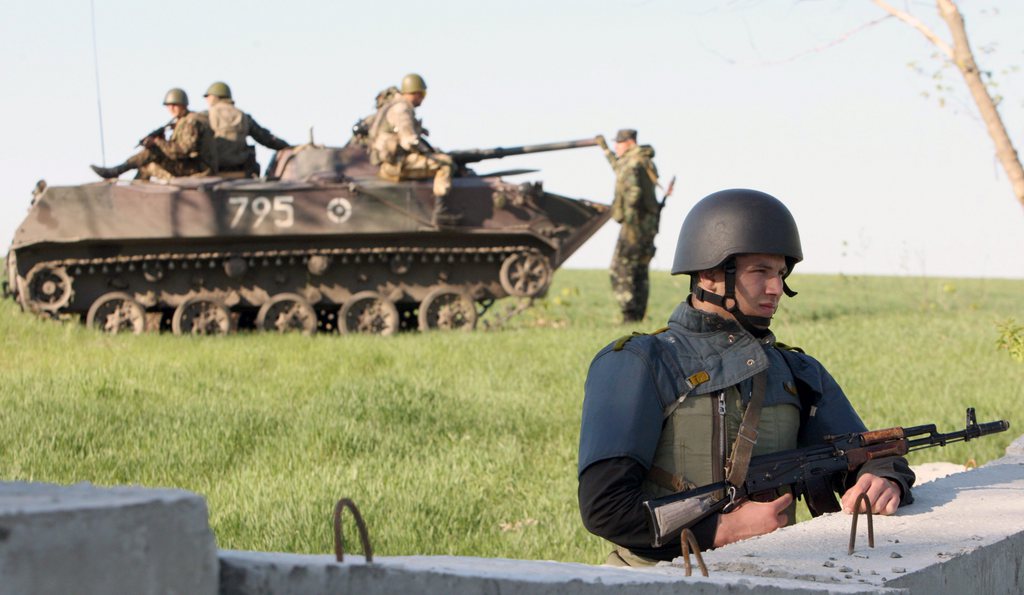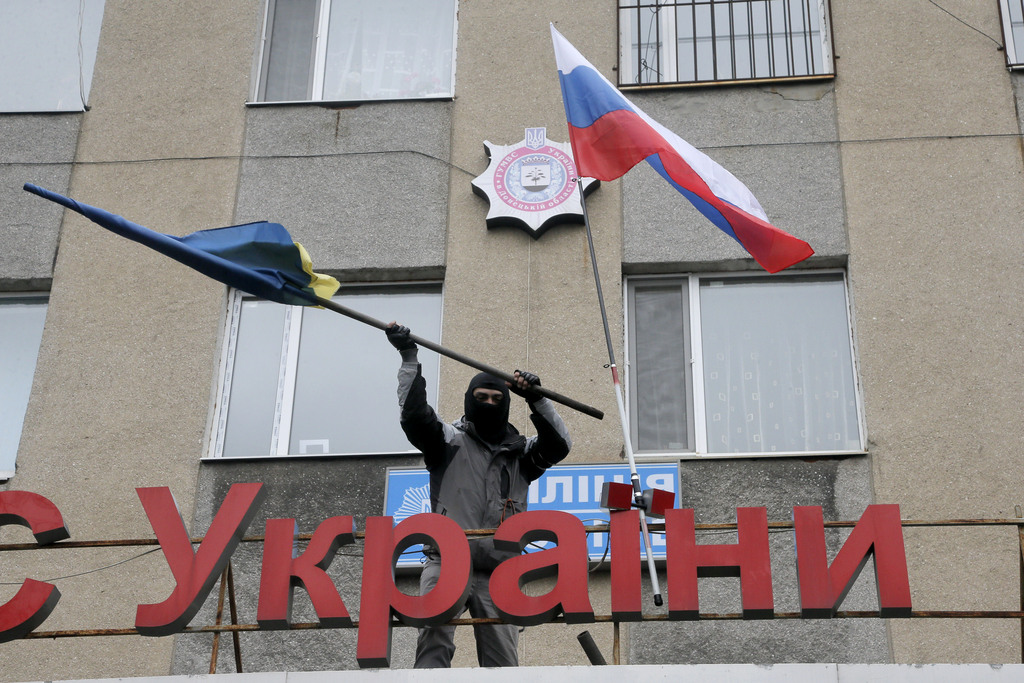OSCE calls for release of detained inspectors

The Organization for Security and Co-operation in Europe (OSCE), currently chaired by Switzerland, has condemned the detention of a group of its military inspectors in the Ukrainian city of Slaviansk and called for their release.
The OSCE chairman, Swiss Foreign Minister Didier Burkhalter, said on Sunday evening the organisation is working at all levels – through its monitoring mission on the ground in Ukraine as well as through high-level political contacts – for the release of all the detained persons, which also includes a number of Ukrainian civil servants.
Burkhalter told Swiss public television SRF that the situation in the Eastern Ukraine was “difficult” and “almost like during a civil war”. He confirmed that the OSCE already contacted the Russian foreign ministry and that the organisation also plans to talk to the pro-Russian separatists.
Burkhalter stressed that the detention was “unacceptable” and that the safety of all international observers in the country must be guaranteed and ensured. One military inspector was set free on Sunday for health reasons, the OSCE confirmed in a statement.
Russian President Vladimir Putin last month annexed Ukraine’s Crimean peninsula after a controversial referendum and massed tens of thousands of troops on the border to Ukraine. The OSCE sent unarmed monitors to try to encourage compliance of an international peace deal reached earlier this month in Geneva.
Calls for dialogue
The group of unarmed military inspectors from Germany, Denmark, Poland, Sweden and the Czech Republic, as well as representatives of the Ukrainian defence ministry, were detained by a group of individuals linked to the “people’s mayor” of Slaviansk on Thursday, the OSCE said.
According to Burkhalter, the incident goes against the spirit of the recent Geneva statement agreed upon by Ukraine, the Russian Federation, the United States and the European Union aiming at de-escalating the situation.
Burkhalter called upon all sides to actively contribute to conditions that allow for effective implementation of the Geneva plan. He repeated his previous calls to keep channels of communication open and find ways to peacefully resolve the crisis in Ukraine through inclusive dialogue.
The OSCE chairman also expressed his expectation that Russia’s signals of support, which are crucial, would rapidly translate into progress.

In compliance with the JTI standards
More: SWI swissinfo.ch certified by the Journalism Trust Initiative











You can find an overview of ongoing debates with our journalists here . Please join us!
If you want to start a conversation about a topic raised in this article or want to report factual errors, email us at english@swissinfo.ch.